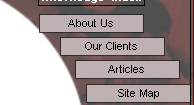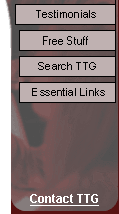One of the latest "techniques for success" is the personal mission statement. Motivational and management gurus say these can be as effective in our own lives as they are in organizations. The real question is, how well do they really work in organizations? So often, after all the committees have fiddled with these statements, they end up as vague, watered-down platitudes that are quickly forgotten. So does that spell success, for either organizations or for us personally?
In my experience, a large part of the problem with organizational mission statements is the committee itself, and the fact that too often nobody has the final "say" as to what really is a meaningful, useful statement. Not so with a personal mission statement. We create this for ourselves, so it reflects what we personally feel will result in an exciting and fulfilling life and career.
But aren't we the victims of chance, of happenings beyond our control? Don't the world economy, the stock market, corporate downsizings and mergers, Mother Nature's wrath and so many other issues control our careers and success? Well, sure they can affect us, but only temporarily, unless we chose otherwise.
Know where you're going. There's an old adage, "If you don't know where you're going, you'll end up somewhere else." How true! So many people come into my career management office who have just been downsized or merged out of their jobs, or who have been terminated because they didn't do well in their jobs - usually because they hated them. These are all folks who have done little or no life or career planning. Had they created a vision and plan of where they wanted to go, they likely would have exercised much more control and avoided these situations.
Perhaps we should call this a vision statement rather than a mission statement, because it's a personal view of the future, involving in-depth, long-term planning.
The vision statement. Okay, so what goes into a personal vision statement and how should it be used?
First, decide what you'd like as your career, financial, lifestyle and personal objectives several years from now. I think 10 years out is a good time frame. Why 10 years? Because that's about as far into the future as most people can project. And, 10 years out is a very important milestone, because all your intermediate planning is based on your ten year plan. For example, your eight, six, four and two year plans are all based on a stepping stone, or stair-step progression to the 10-year plan.
Each plan should reflect your vision of what you'd like to see occur in the career, financial, lifestyle and personal aspects of your life. This, then, is your 10-year vision statement.
Career plans should include what you'd like to do and where you'd like to do it - in what industry and function. For instance, if you're at entry level in finance, you may want to start as an assistant accountant for the next two years in order to learn the ropes. Then, you may want to plan a move into a full accountant slot after two years. Then after four years, you may feel you should move into a Senior Accountant's position. After six years, you may see yourself as an assistant controller. After eight years, a controller, and after ten years, the chief financial officer. Of course, the same process will work for someone in sales, marketing, operations, human resources, manufacturing, facilities management and any other function and in any industry.
Financial and personal considerations. Mapping out your financial plans should include the compensation, as well as investment goals you wish to achieve at the two, four, six, eight and 10-year marks. Obviously, these plans relate closely to your career plans, because your various jobs will likely affect your financial plans all along the way. So, be realistic when projecting here.
Lifestyle plans should include the kind of life you want. Will it be an urban, city lifestyle, one in the mountains, near the beach, on a boat, in another country? You decide, and then plan to attain that lifestyle in stair-step progressions, as they relate to your career and financial plans within each time frame you establish.
Personal Plans should include such issues as marriage, child and parental care (as they all become older), self-development/sabbaticals and travel aspirations.
Now, these plans don't have to be cast in stone. You'll always have choices to make along the way. For instance, if after the first eighteen months, it doesn't look like you're going to make it to the Accountant job you planned for the two year timetable, you have two choices: either change the plan or change organizations - moving to one which has the job you want.
Staying on track. Of course the trick to all of this is re-visiting the vision plan frequently and staying on-track with all the intermediate goals. So, make an effort to look at the plan on a regular basis. Set up some reminders, such as marking your calendar with timetable dates.
I have personally seen this planning process has changed many lives, making them much more meaningful and fulfilled. If you know where you're going, you eliminate the "should haves" and "could haves" at the end of the line. There won't be any need for excuses, because your vision has kept you in control and on-track all along the way.

